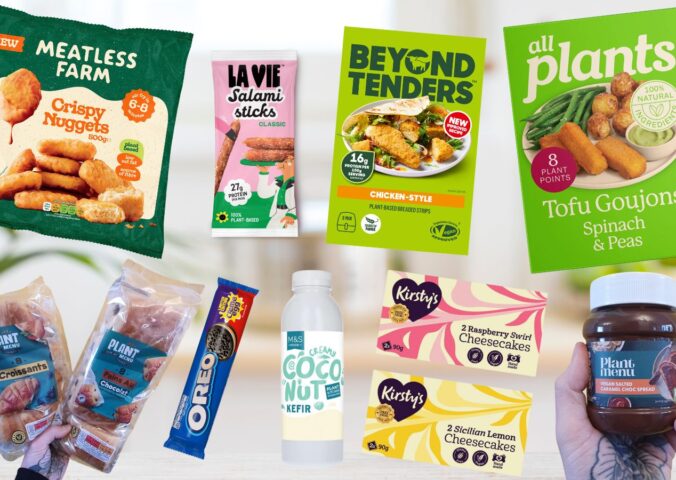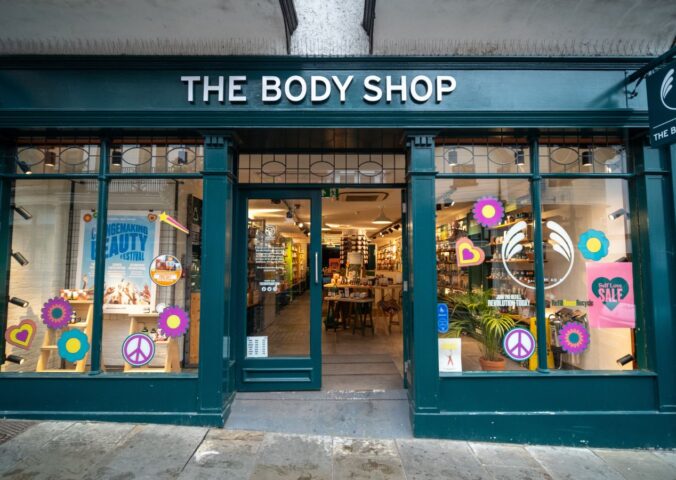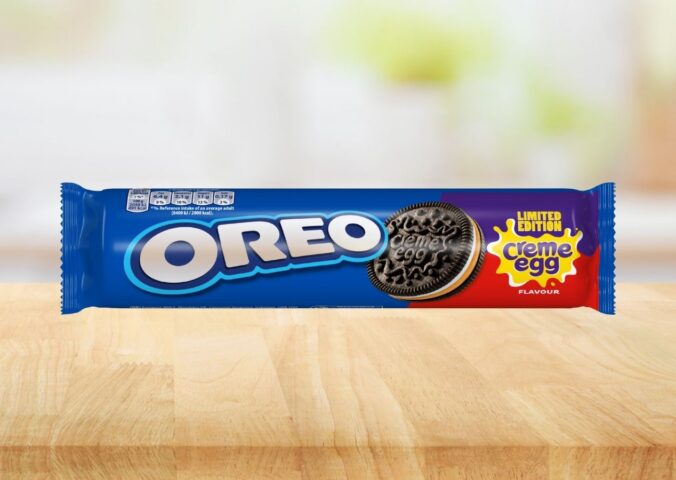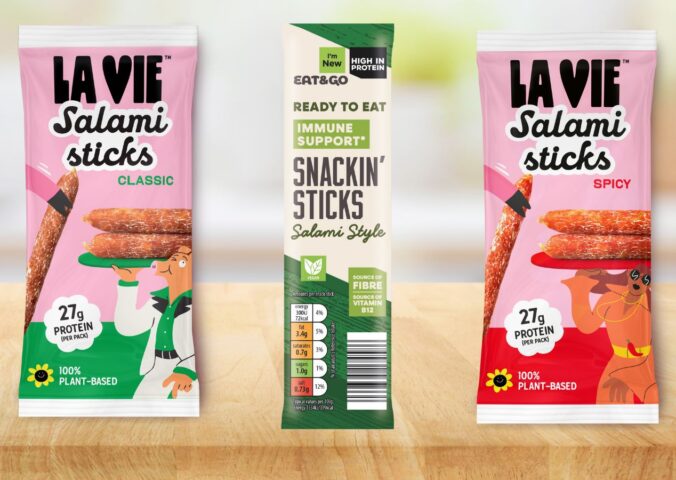Peanut butter is a spread made from dry roasted peanuts. Over the years, it’s become a hugely popular food all over the world. A favorite in sandwiches, it’s also commonly spread on toast, blended into smoothies, or incorporated into both sweet and savory recipes. In its basic form, peanut butter is a simple food that’s hugely versatile. It’s a good source of plant-based protein, healthy fats, and various essential nutrients. But is peanut butter vegan? Does it contain fully plant-based ingredients? And what should vegans check for on peanut butter labels?
Is peanut butter vegan?
As with many food items, in its simplest form, peanut butter should always be vegan. The vast majority of peanut butters you find in grocery stores will therefore be fully plant-based. Traditional peanut butter is made from peanuts and often a small amount of salt or oil.
However, it’s important to check the label, especially with flavored or specialty peanut butters. This is because some may contain additional ingredients that are not suitable for vegans. For example, chocolate peanut butter may contain dairy. Other variations can contain honey, milk powder, or other non-vegan additives or flavorings.
Does peanut butter contain palm oil?
Many peanut butters contain palm oil, which some vegans avoid. Palm oil is the most widely consumed vegetable oil on Earth. It is also a source of significant deforestation, especially in Indonesia.
According to The Orangutan Project, nearly 80 percent of orangutan habitat has disappeared in the last two decades. Now, more than 50 percent of orangutans live in unprotected forests managed by palm oil, timber, and mining companies.
How is peanut butter made?
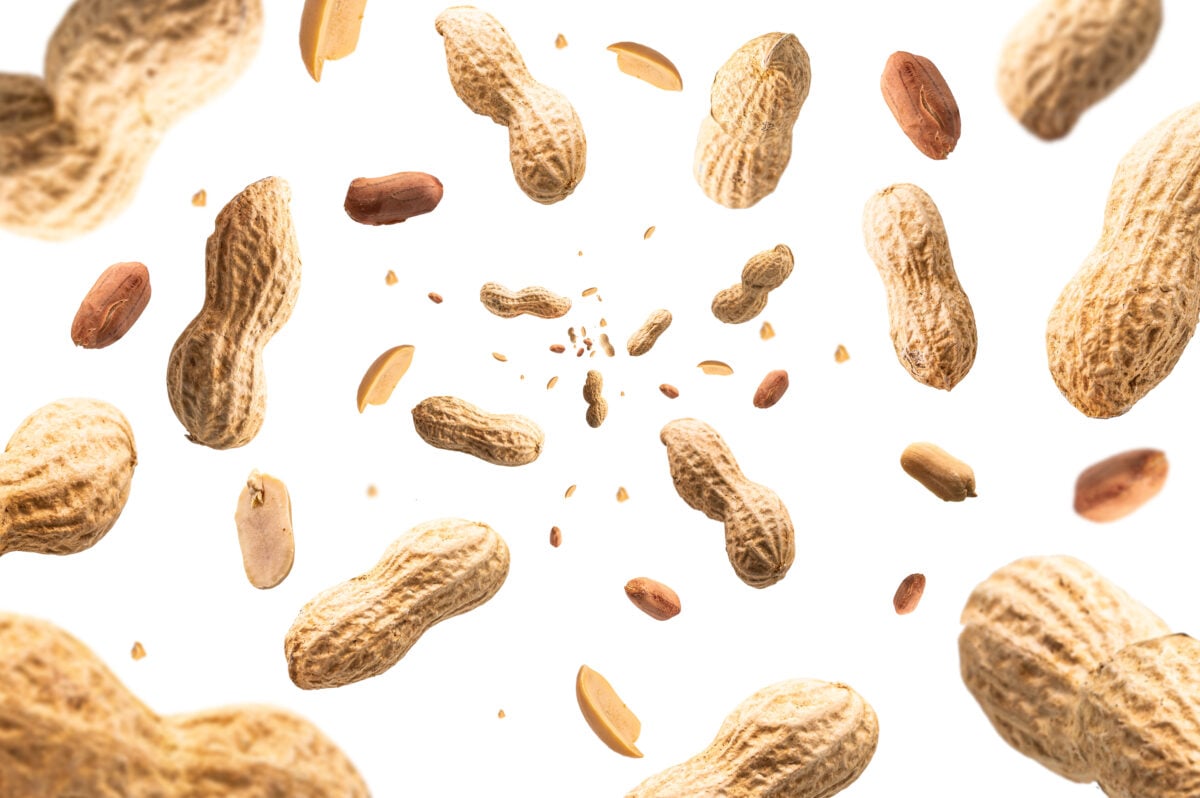
Peanut butter is the result of grinding roasted peanuts until they form a smooth or crunchy butter-like consistency. It’s a simple process and not one that should ever not be vegan.
Roasting enhances the flavor and aroma of the peanuts. After roasting, the peanuts cool before going into grinding machines, which crush them and grind them into a paste. The length of grinding time can affect the texture of the final product, determining whether the peanut butter is smooth or crunchy.
Depending on the type of peanut butter, manufacturers may add extra ingredients. Some peanut butters contain salt, sugar, or oils for flavor and texture.
Some commercial peanut butters may also undergo processes like homogenization to achieve a smoother texture or to prevent the natural separation of oil that can occur in natural peanut butter.
A short history of peanut butter
Peanut butter is said to date back to the 15th century when the Aztecs and Incas first mashed roasted peanuts into a paste.
It was noted for its nutritional value in the late 19th century. Dr. John Harvey Kellogg, a physician and nutritionist, patented a process for creating peanut butter in 1895. He used peanut butter as an easy-to-eat, high-protein product to feed to sick patients.
Peanut butter gained popularity in the US during and after World War II. At that time, it became a staple in the diets of US soldiers. The convenience, long shelf life, and high-protein value helped make it a hit around the country. Since the war, peanut butter has become a household staple, and numerous brands have created their own version.
Which peanut butter brands and products aren’t vegan?
There are instances where peanut butter might not be vegan, especially in the US. This might be the result of honey, which is sometimes added for sweetness, and milk powder, which can be added in different flavored peanut butters. Meanwhile, some varieties may include added fats such as butter or other non-vegan oils.
To ensure that peanut butter is vegan, it’s important to check the product’s ingredient list. The following peanut butters are not vegan-friendly because they contain honey:
- Peter Pan Crunchy Honey Roast Peanut Spread
Smucker’s Natural Peanut Butter with Honey - Skippy Roasted Honey Nut Creamy Peanut Butter
- Justin’s Honey Peanut Butter
- Big Spoon Peanut Butter With Wildflower Honey
Although peanut butter is normally vegan, peanut butter flavored chocolates and other treats will often be non-vegan.
How to tell if peanut butter is vegan
To determine if peanut butter is vegan, you should check the ingredient list on the product packaging. Ensure that the ingredient list does not include any animal-derived ingredients. To help determine if a product is vegan, look for “Certified Vegan” labels if unsure.
If you are concerned about cross-contamination with dairy or other non-vegan ingredients, check for any allergy or cross-contamination warnings on the packaging.
Natural, organic and palm-oil free peanut butters often have simpler ingredient lists, consisting primarily of peanuts and salt. They are more likely to mark themselves vegan-friendly and will save you the hassle of looking up additives to make sure they aren’t secretly non-vegan.
Always keep in mind that product formulations can vary between brands, so it’s essential to check each product individually. If you’re unsure about a specific peanut butter product, you can contact the manufacturer for clarification.
Vegan peanut butter brands to try in the UK
The UK has an abundance of vegan peanut butter. Nearly all cheap supermarket own-brand peanut butters are vegan. The only exceptions are likely to be special products featuring extras like chocolate or caramel.
If you’re looking for a vegan, all-natural, palm-oil free peanut butter, here are some to pick from:
Meridian
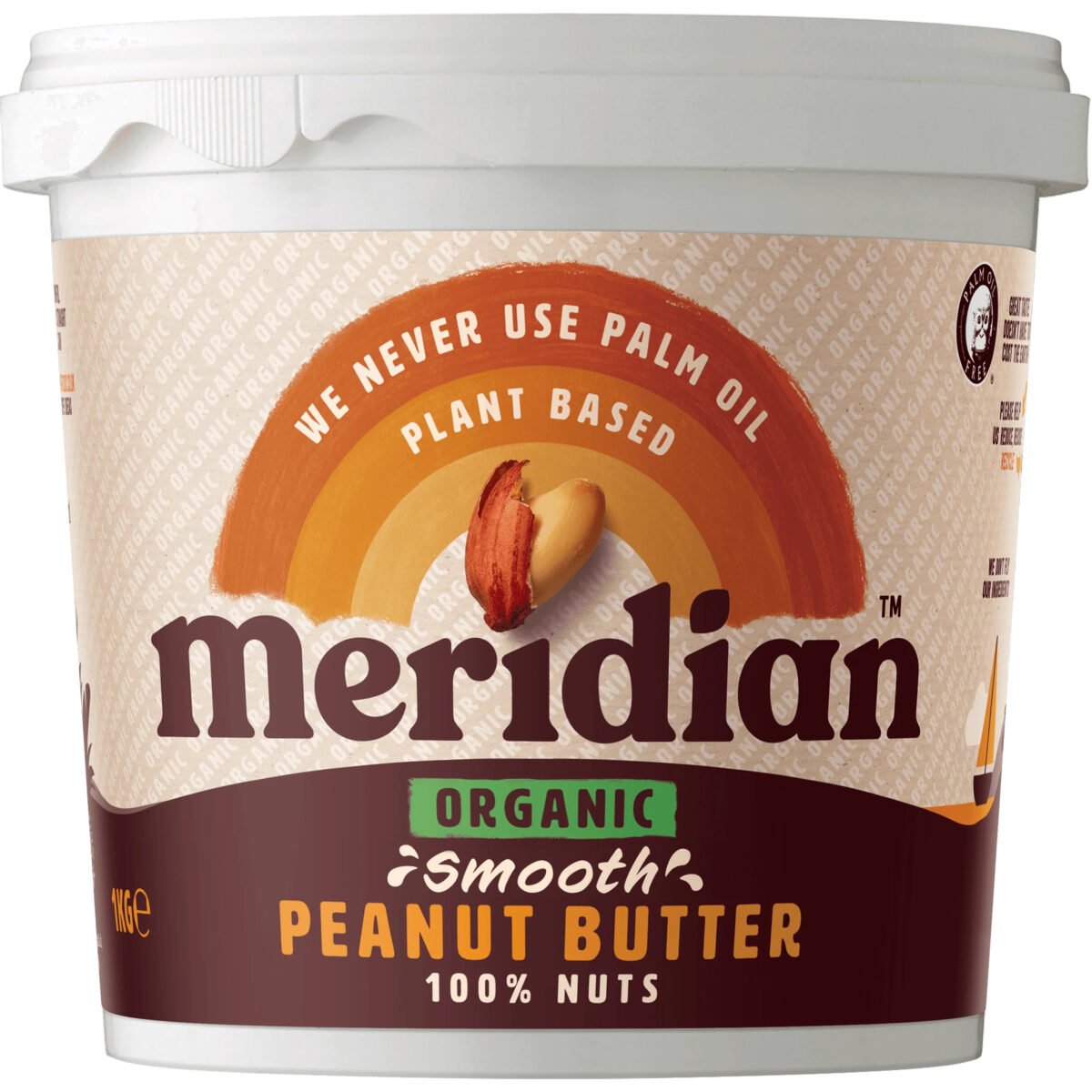
Meridian’s natural peanut butters are made with 100 percent nuts, or just have a pinch of sea salt added, and nothing else. They roast whole peanuts in their skins and then crush or grind them for a crunchy or smooth finish.
Proper Nutty
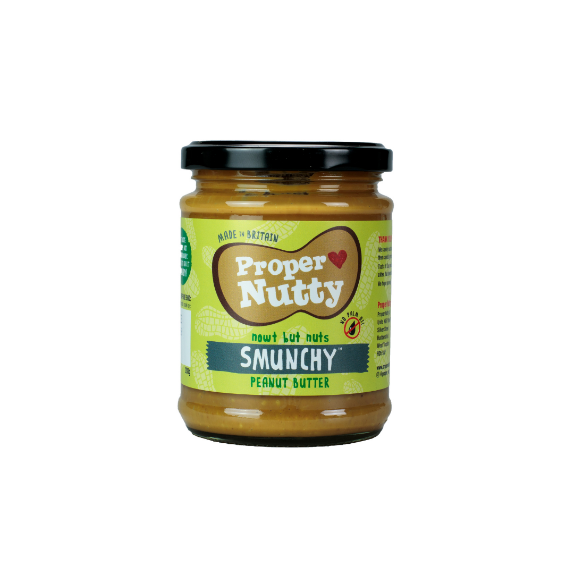
Proper Nutty is “bean to cup” peanut butter. The entire range is naturally vegan, gluten-free, soy-free, and dairy-free; Proper Nutty is also free from palm oil, plastic, and sugar. The peanut butter is slow roasted, ground, and packaged in small batches in the UK within two hours.
Pip&Nut

Pip&Nut’s peanut butter is made from only two ingredients: hi-oleic Argentinian peanuts, selected for their naturally sweet flavor and a sprinkle of sea salt.
Manilife
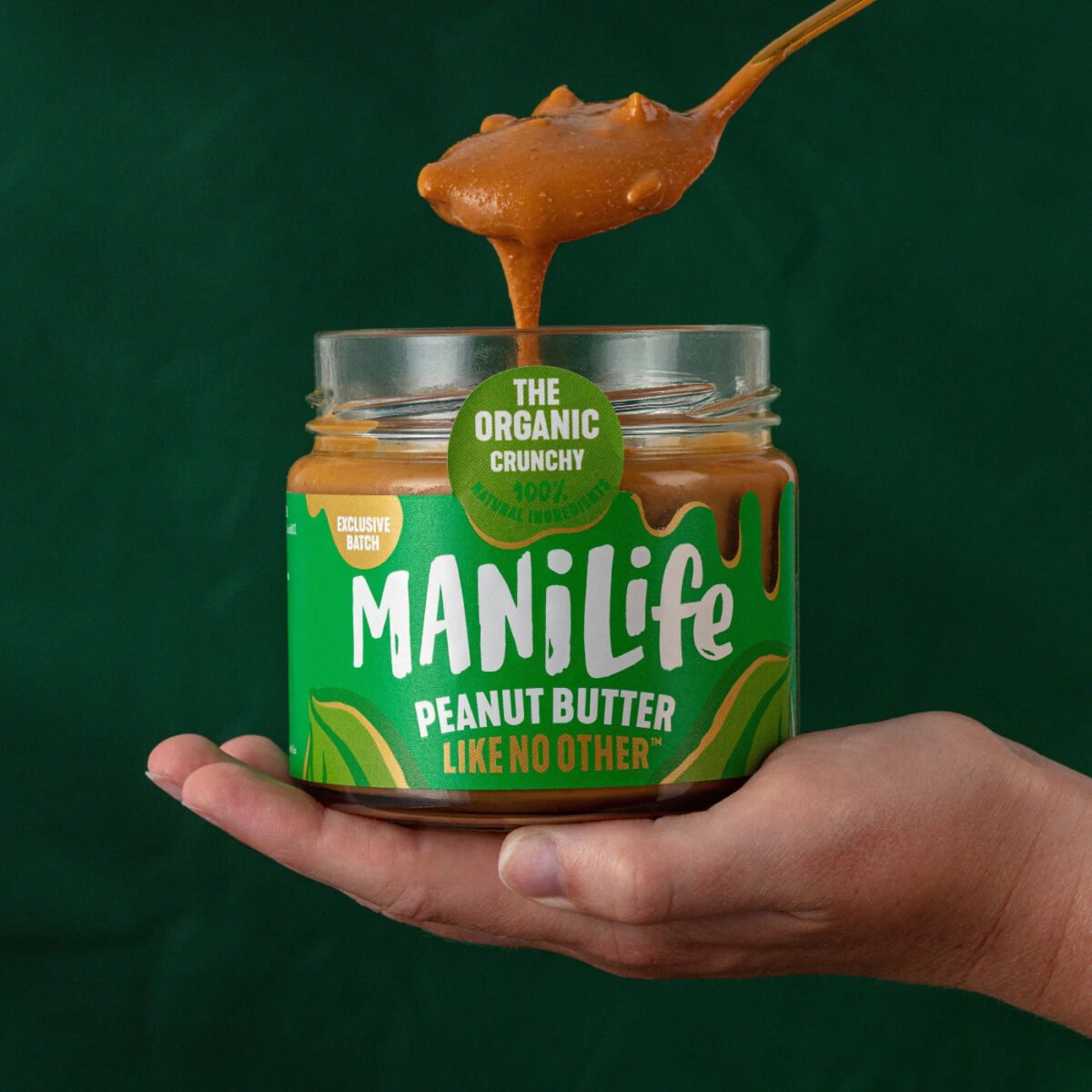
Just peanuts and sea salt for this fully plant-based and palm oil-free peanut butter maker. Manilife offers a range of flavors, including cocoa, which are all vegan.
Vegan peanut butter brands to try in the US
In the US, it is more likely that peanut butter might not be vegan as brands sometimes add honey, milk powder, or non-vegan sugar to their products.
To be safe, choose an organic, natural and vegan-certified peanut butter. For example:
CB’s Nuts Peanut Butter
Offers one- and two-ingredients varieties (the second contains salt). CB’s Nuts has a wide range of flavors and does not contain palm oil.
Yum Butter’s Organic Peanut Butter
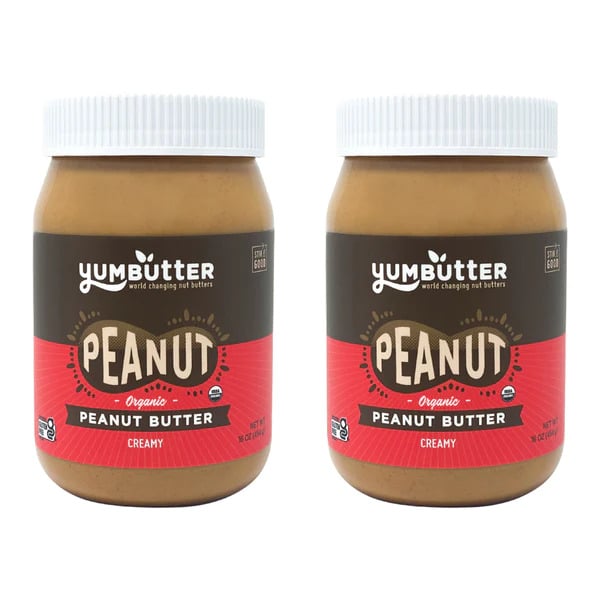
Made from organic peanuts and sweetened with coconut sugar. Contains palm oil.



